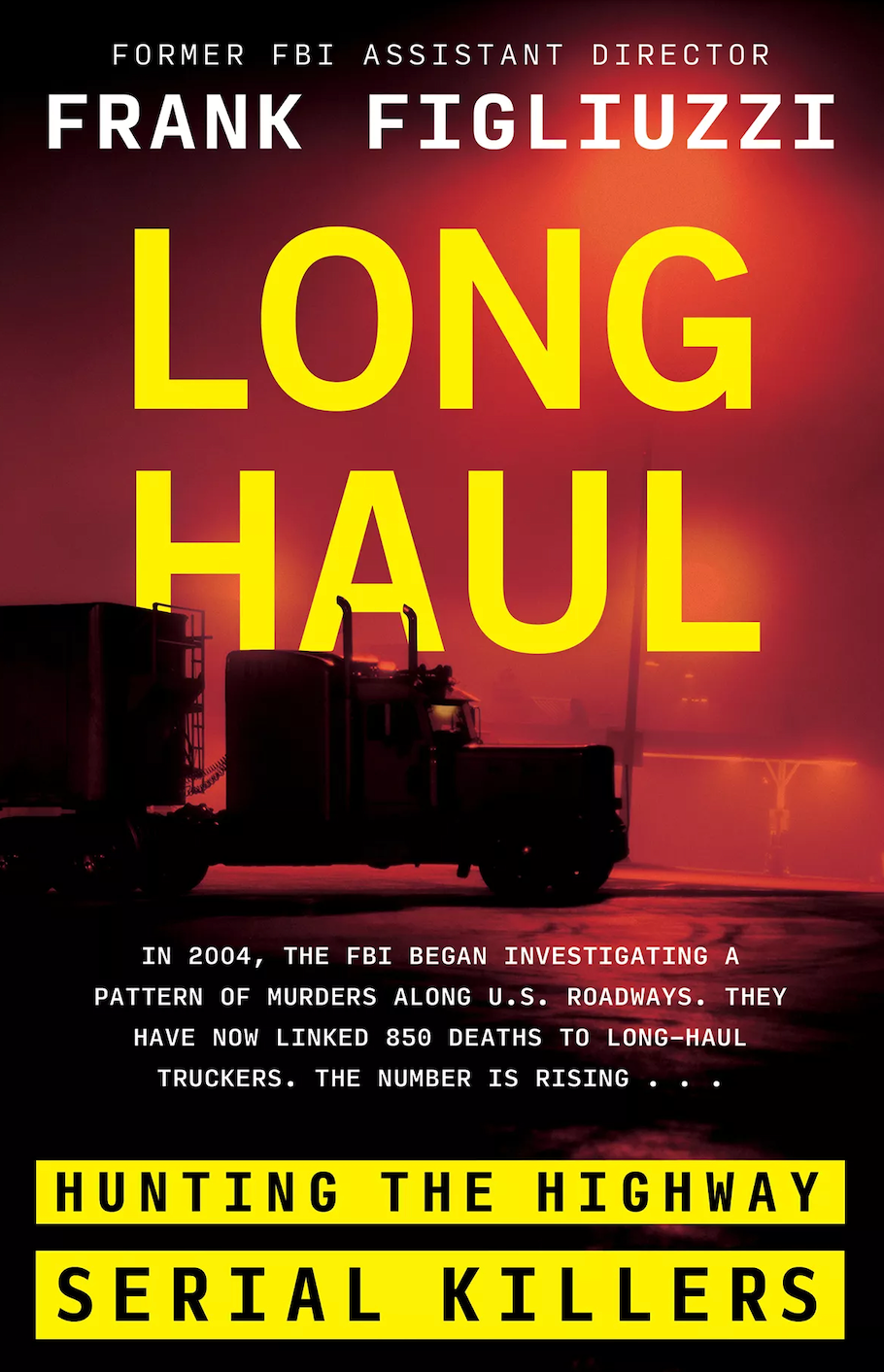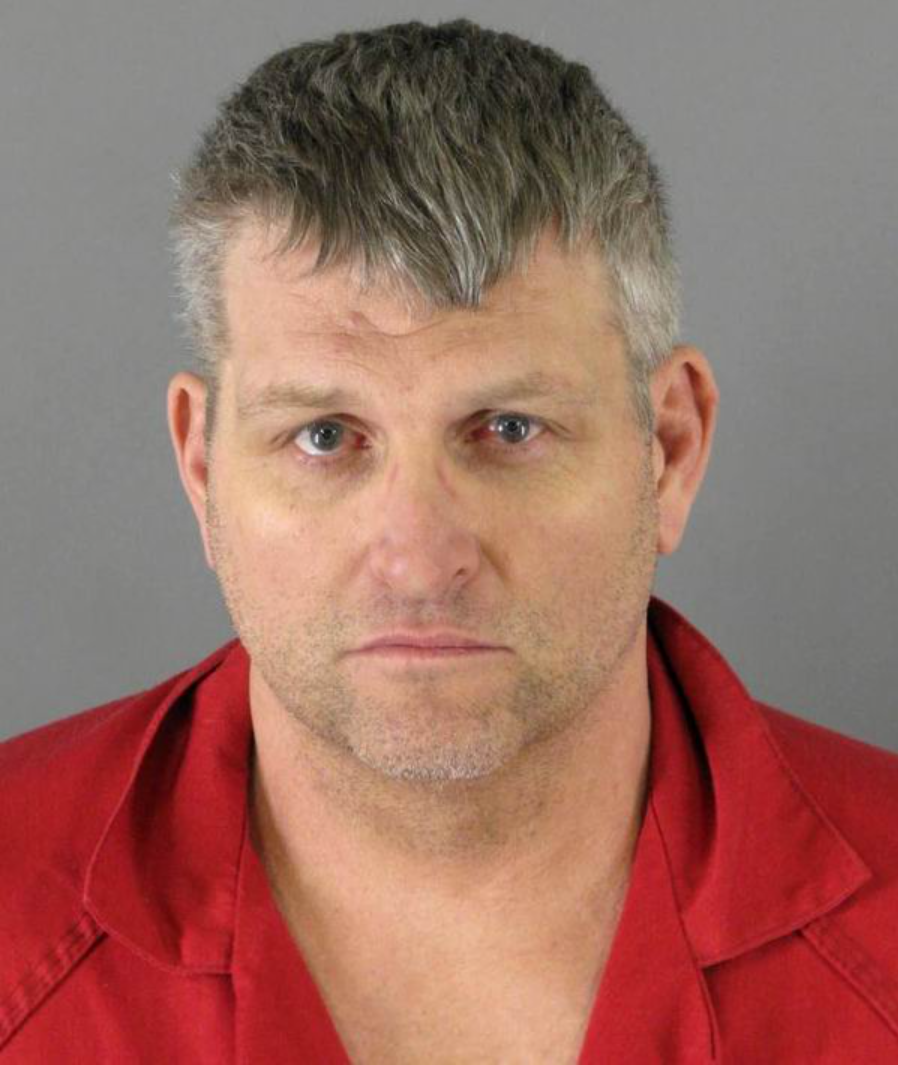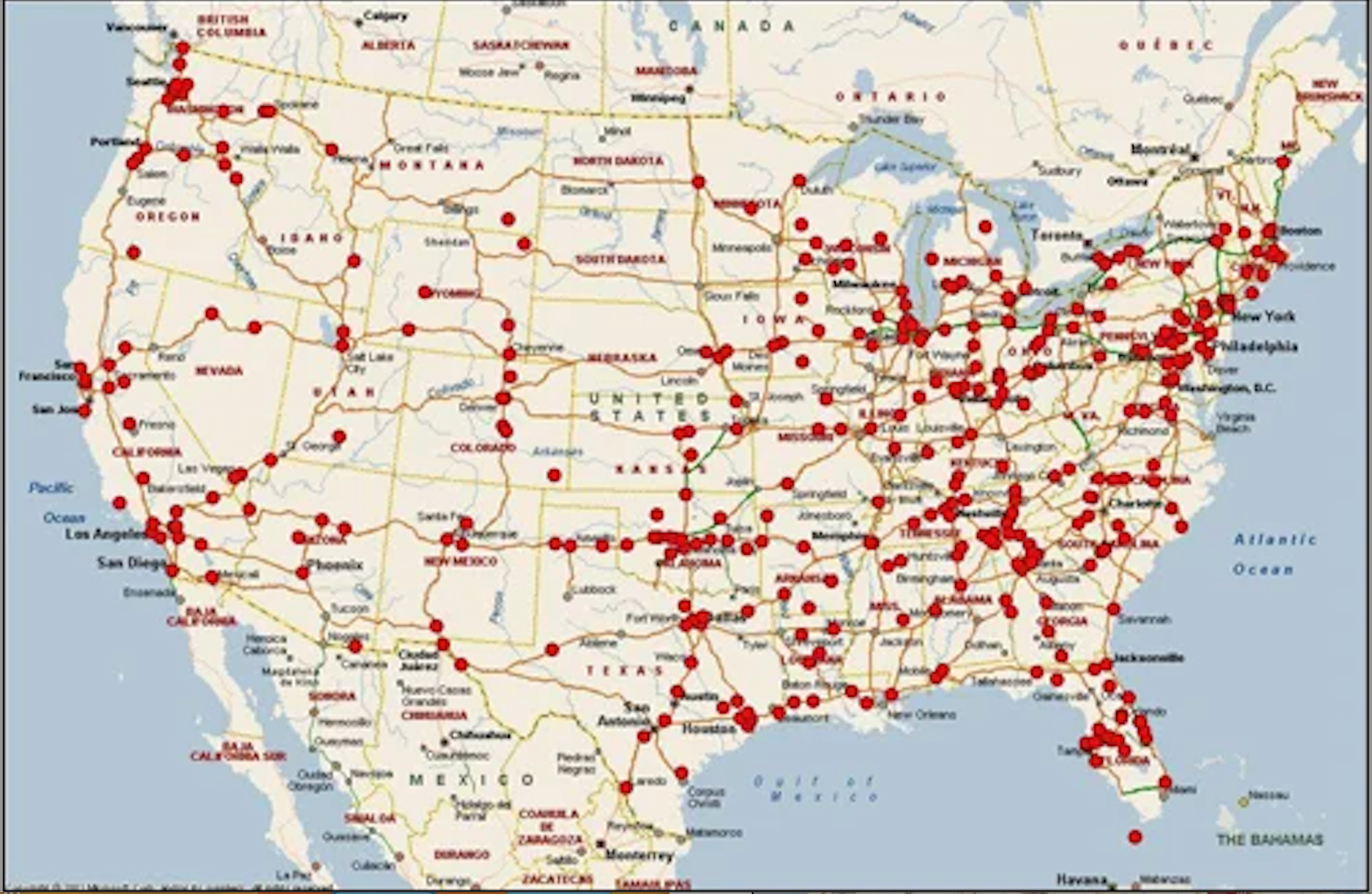Is long haul truck driving the perfect guise for a serial killer?

If there’s a perfect career for a serial killer, a long haul truck driver just might be it.
They are often loners, living a nomadic lifestyle that involves constant travel across state lines and jurisdictions, providing easy access to an array of potential victims and allowing truckers to evade law enforcement for years.
A new book by former FBI assistant director for counterintelligence Frank Figliuzzi – Long Haul: Hunting the Highway Serial Killers – offers a terrifying glimpse into the world of these America’s serial killer truck drivers.
At least 850 murders along America’s highways over the past few decades have been linked to long haul truck drivers, according to the FBI Highway Serial Killings initiative.
Keith Hunter Jesperson, a long haul trucker from Canada best known as the “Happy Face Killer,” terrorized women at rest areas and bars across the country in the early nineties, killing his conquests in at least five states during his murderous spree.
In previous conversations with The Independent, he has nonchalantly recounted his tales of strangling women when they angered him and dumping their bodies, which he referred to as “taking care of business.”

One woman was anxious to keep moving to her destination, but Jesperson was eager to sleep.
“I said, ‘Just let me have four hours of sleep and everything will be fine.” he told the true-crime podcast The Lighter Side of Serial Killers. “About 20 minutes later she pushed on me and I got angry and she died.”
Figliuzzi said his research revealed truckers’ jobs allow them to “grab a victim in one jurisdiction, kill them in a second jurisdiction, dump their body in a third jurisdiction – and be on their way before anyone has figured anything out.”
And Jesperson himself explains exactly how trucking helped him get rid of bodies. He worried that the victim could be linked back to him because he assumed she had a criminal record and she had used his credit card to make a call so he decided he needed to remove her identity.
“I thought, ‘I can put the body under my truck, drag it down I-80 and get rid of her identification, at least her facial features or fingerprints and so forth.’” And that’s what he did.

Later in the same decade, another long haul trucker – Wayne Adam Ford – walked into the Humboldt County Sheriff’s Office in California and confessed to killing four women. He then handed over a plastic bag that contained the breast of one of his victims.
And there’s the “Truck Stop Killer,” Robert Ben Rhoades, who built a torture chamber in the back of his truck where he kidnapped, tortured, raped, and killed as many as 50 suspected victims.
These men are some of America’s most notorious highway serial killers. They’ve been caught and are spending the rest of their lives in prison. But there are hundreds more who are still out there.
More than 200 cases of highway murders remain active and unsolved, with the bureau making its way through a list of about 450 suspects.
The book also highlights Bruce Mendenhall, who like Rhoades is known as “The Truck Stop Killer” or “The Rest Stop Killer,” and also the “The Prosti-Shooter.” His truck was found to contain the blood of numerous murdered women.
He was convicted in one murder and is charged with the slayings of three other women at truck stops in Alabama, Indiana and Tennessee. He is still under investigation for murders in Georgia, Illinois, New Mexico, Oklahoma, and Texas.
Dellmus Colvin, “The Interstate Strangler,” reportedly killed between 47 and 52 women, most of them women working as sex workers, for the sheer pleasure of killing, and “always slept well at night,” according to the book.
“This book started as an interest in the FBI’s Highway Serial Killings Initiative but quickly became a quest to understand the cultures beneath the killings,” Figliuzzi said about his book, which was released on May 28.
“The truckers and the trafficked, the professors and the pimps, the cops and the crime analysts took me on a journey to places I hadn’t anticipated, populated by people I never knew. They allowed me into their worlds, their realities, and their stories.”

Figliuzzi tagged along with a truck driver for more than 2,000 miles to understand the subculture from the inside.
He found that it was mentally and physically taxing work, often tedious and solitary, and can take a toll on the driver’s health.
“It’s part of the negative side of the culture that they’re incredibly sedentary for hours on end. There’s little or no human engagement, depending on the type of trucking you’re doing,” Figliuzzi told The Guardian.
So does the grueling work take a toll on truckers, driving them to kill? Or are people with serial killer tendencies drawn to this occupation because of the lifestyle?
“A certain type of personality might be attracted to long-haul trucking because of their personality since it is isolated and they’re perfectly fine with that and the lack of engagement with others,” Figliuzzi told The Guardian.
“Does it present to them an opportunity to commit crimes, even murders, largely undetected, exploit the seams in jurisdictions – grab a victim in one jurisdiction, kill them in a second jurisdiction, dump their body in a third jurisdiction – and be on their way before anyone has figured anything out? Yes.”
According to the FBI, long-haul truckers are the ones responsible in most cases of highway homicide.
“Long-haul truckers exist for days or weeks at a time in a world of their own. They speak their own language, eat at their own establishments, sleep in their own rigs,” Figliuzzi writes in his new book.
“Part cowboy, part fighter pilot, part hermit, long-haul truckers glide along the edge of a certain seam in the fabric of our society—the seam that separates their reality from ours.”

Another part of the focus falls on the investigators – and their plan to combat the highway killings.
Highway Serial Killings initiative was created by the FBI in 2009, to raise awareness among law enforcement agencies and the general public about this issue.
A map on the website is covered with red dots marking the 500 locations where bodies have been discovered along America’s highways over the past 30 years.
A closer look shows many of them form a horizontal trail across the south/central part of the country following Interstate 40. I-40 from Wilmington, North Carolina, to Barstow, California.
Figliuzzi also spoke to women who survived terrifying encounters with truckers. He said part of his book is about understanding the victims, who overwhelmingly end up being at-risk women forced into the sex trade.
“The reason these cases go unsolved for decades is because these killers are exploiting gaps in jurisdiction with law enforcement,” Figliuzzi told The Guardian. “The victims are often transient and no one even knows they’re missing.”
“My hope is that people will come to a greater understanding of the trap of trafficking in our society,” Figliuzzi said.
“No one really champions the cause or speaks for these deceased victims because their lives have been snuffed out.”





